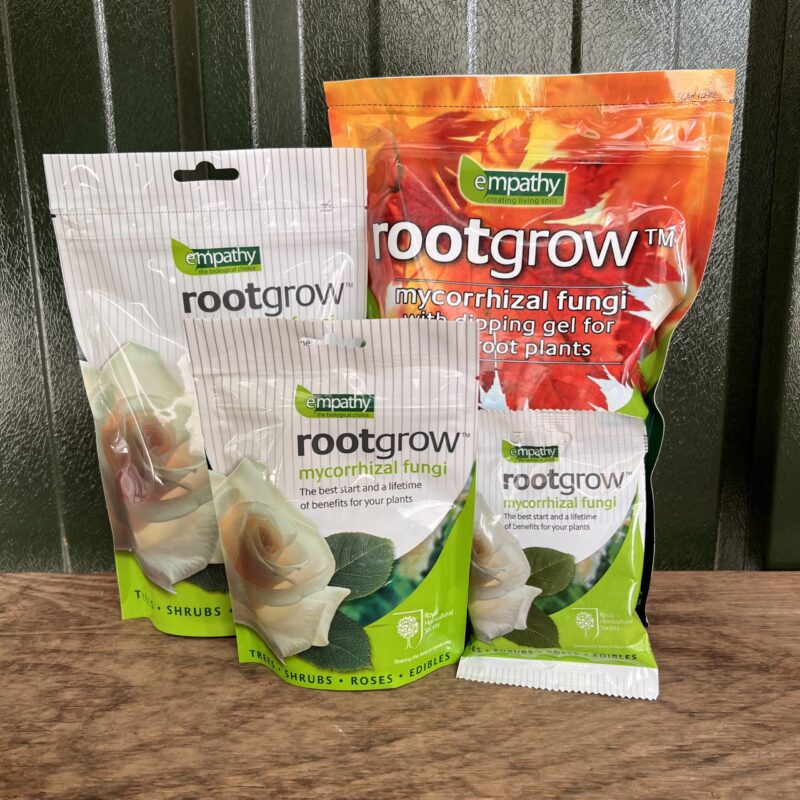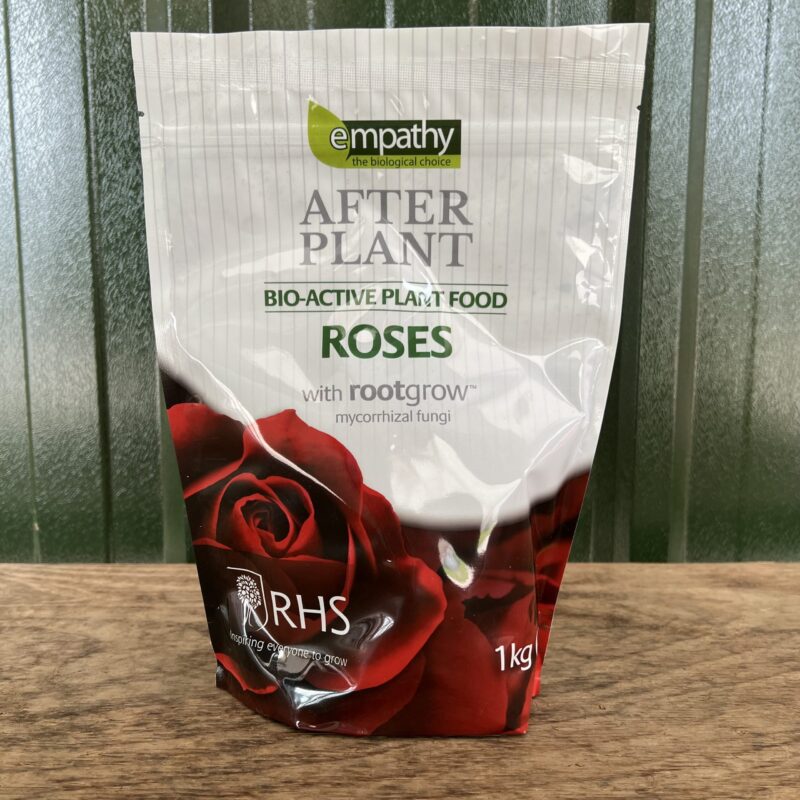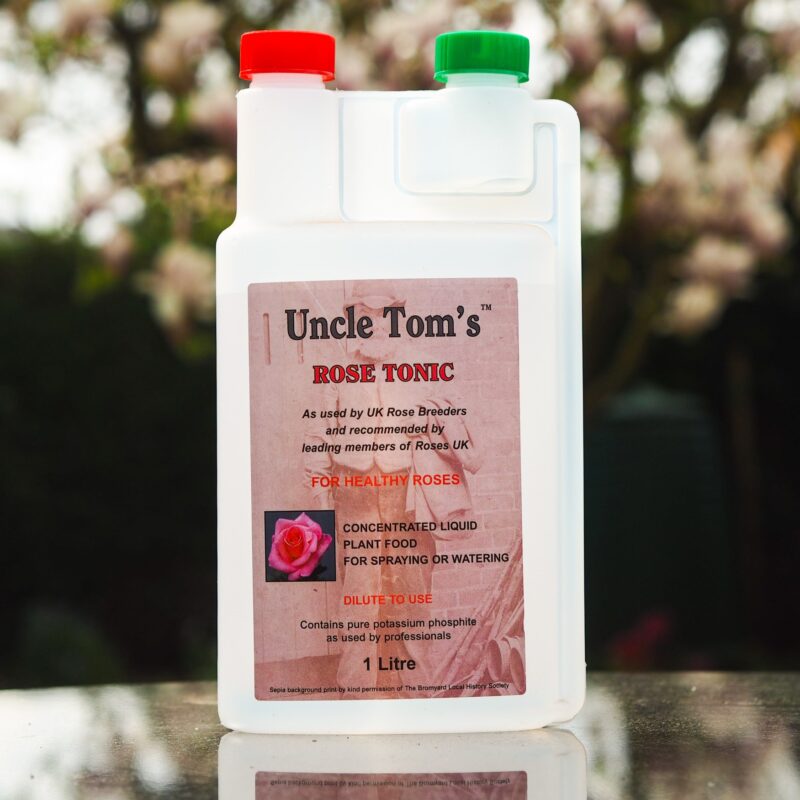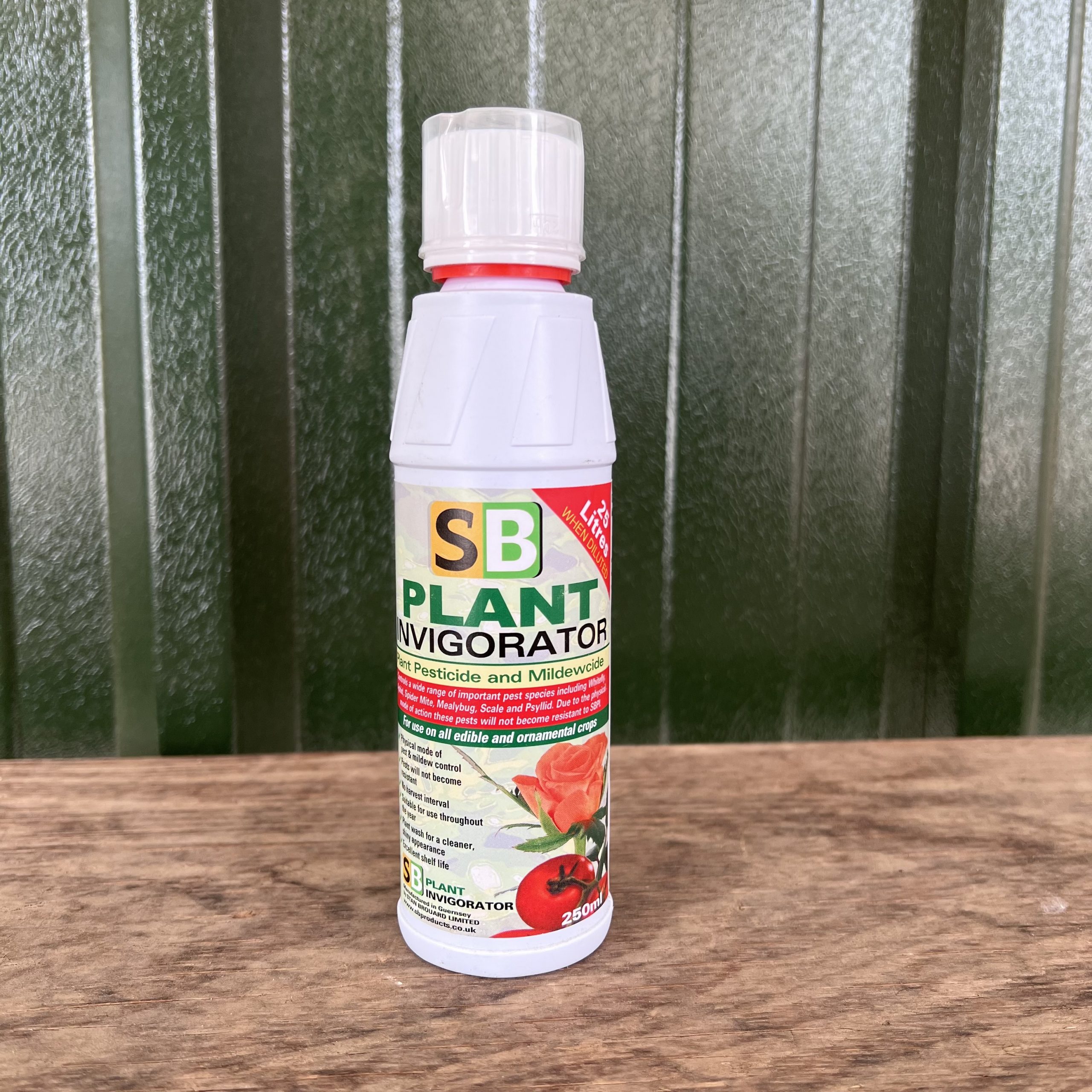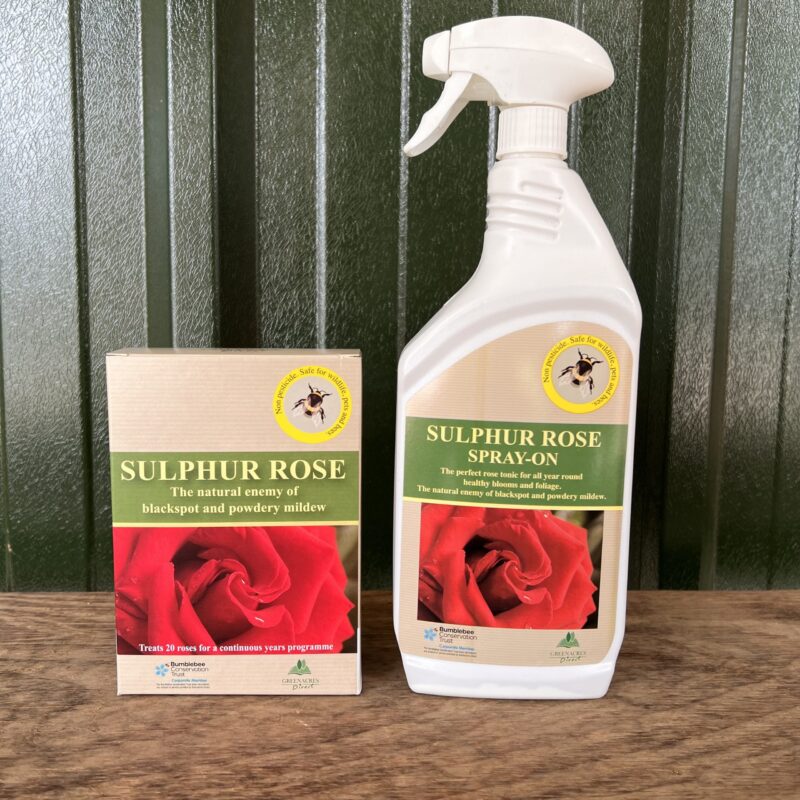Advice for Healthy & Beautiful Garden Roses
Garden Roses are very easy to grow and look after with no other garden plant able to match the amount of blooms and flowering period over such a long period through the gardening year.
Roses do really appreciate and benefit strongly over the long term from being well cared for and regularly checked for healthy growth & stems. To keep your roses healthy and flowering, using Rootgrow at planting time, allowing plenty of room for each rose, selecting a position that gets a minimum of half a day’s summer sunshine and feeding your roses at least twice a year with Empathy After Plant Rose Food along with dead-heading and annual hard winter -pruning will be enough with most modern roses to ensure a trouble-free time and glorious displays of bloom from early summer to late autumn.
Having neighbours nearby or other roses in your own garden that are neglected or become heavily infected with diseases such as Rose Blackspot can create problems in your garden roses also if you don’t take additional precautions with your roses after planting, there are a few simple safe Rose products and steps available that we strongly recommend for the upkeep of your roses:
Rootgrow, using this product at planting time will benefit all roses leading to quicker and stronger establishment and is particularly beneficial if your soil conditions are poor, dry or sandy and essential if you are planting a rose where there was one in the same position before to prevent problems with rose replant sickness.
Why use Rootgrow? One treatment lasts forever, Easy To Use, Earlier and Better Growth, Better Drought Tolerance, Strongly recommended for light, sandy and poorer soils. Increases Uptake of Fertilisers & Trace Elements After Planting, Reduced Mortality of Plants when used in Difficult Areas of Garden, Prevents Rose Replant Problems allowing you to plant roses exactly where a rose was before without the need to exchange the soil.
The smallest 60g Rootgrow pack costs £2.25 if ordered with your roses and treats 2 plants (150g = 6 plants, 360g = 15 plants, 1kg = 40 plants), Unused Rootgrow can be stored permanently as long as the granules remain dry and it can be used on other hardy plants at planting time excluding acid loving plants like Azaeleas and Rhododendrons.
Empathy Afterplant Rose Food: Roses are hungry heavy feeders, keep them well fed and they will be much less prone to disease problems, flower numbers will vastly increase and flower colour and size will also be improved. Use a granular specialised Rose Feed such as Empathy After Plant Rose Food at Planting time added into the bottom of the planting hole in conjunction with Rootgrow and thereafter a handful sprinkled thinly around each plant twice a year in Spring and Mid Summer (3 times a year if planted in a container), we recommend granular fertilisers which contains a mix of Nitrogen, Phosphate and Potash at the right levels to promote flowering but not lots of lush tender growth that might get disease problems and also containing essential trace elements like Iron, Boron and Magnesium which help prevent the foliage from yellowing and give added disease resistance.
Uncle Tom’s Rose Tonic: Used regularly on our Nursery and now being widely used by Commercial Rose Growers, Uncle Tom’s Tonic is both a very safe and very good product for Roses and almost all other plants, excellent in promoting healthy shiny foliage and particularly useful in controlling Rose Mildew, insect friendly, it contains no harmful chemicals and is rich in Phosphite and Potassium, two of the main needed building blocks for healthy plants which can be easily applied either as a foliar spray or soil drench during active growth on a regular basis with no resistance build up problems.
It also works as a great plant pick me up even on old poorly performing plants when applied as a soil drench around the plant. rapidly moving through the plant and promoting green healthy growth without promoting lush rapid new growth which is then more prone to disease attacks. The added great benefit of Uncle Tom’s Tonic is much improved disease resistance on roses, with excellent control of Rust, Black Spot and Mildew by regularly using this product. A good number of Commercial growers are now using this product and nothing else! We have recommended this product on numerous occasions to customers with poorly performing roses and they have reported back excellent results. available from Style Roses in 500ml and 1 litre packs.
SB Plant Invigorator: This is a great product for all roses and helps in 3 ways if sprayed regularly during active growth in conjunction with our other available spays, SB Plant Invigorator is a safe bee-friendly product that helps to control common rose pests like Greenfly, Whitefly, Spider Mite and Mealybug, gives good control against rose mildew and boosts foliage, leaving leaves healthy and shiny after use. This safe product can also be used on all other plants including edible plants and fruits with no harvest interval after spraying and is also very useful for controlling greenhouse pests and diseases. Simply dilute 10ml of concentrate to 1lt of water and spray foliage thoroughly.
Sulphur Rose: Natural non-pesticide product, safe for wildlife and animals, this excellent product attacks Blackspot and Mildew giving fast and effective control either as a preventative or cure for problems and is also very helpful in controlling Rust on roses, promoting healthy blooms and foliage and preventing yellowing of leaves. Can be used as a summer foliage spray (5 – 10g per 4.5lts water) or winter drench (30g per 4.5lts) to control or kill off Blackspot and rose disease spores in the soil around the roses which will help greatly to prevent future re-infection of Rose Blackspot. Spray up to every 2 weeks during active growth, non-resistant so can be used regularly on roses, and available both as a powder or ready-to-use liquid spray.
Rust on Roses: After many trouble-free years, Rose Rust disease is becoming an increasing problem in Rose Gardens in the UK and the most difficult rose disease to control as new spray-resistant strains of Rose Rust spread around the UK on the winds and the advent of global warming allowing the Rust disease spores to survive through the winter through milder weather and lack of very hard frosts, even on the Rose Nursery with commercial sprays it can be difficult to control, the one good thing is that Rose Rust is variety specific and does not affect all Rose varieties and there is a strong tendency for the disease to occur on older rose varieties that have been around for many years with modern varieties being mainly trouble-free, our nursery policy is to discontinue supplying and growing varieties that become Rust Infected to maintain the high health & quality of our roses.
The best control in the garden for rose rust is to give your rose plants plenty of room to grow, plant in an airey semi-open position that get’s at least half to a full day of sunshine, allowing good air movement through the plants & faster drying of foliage after rain, avoid wetting foliage when watering, feed as advised with Empathy Afterplant Rose Feed at least twice a year to keep your roses strong & healthy, pick off any leaves infected with the disease (see picture below), typically yellow spotting on upper leaves with deep bright orange clusters of spores forming on underside of leaves as soon as seen and dispose of in the bin, Sulphur Rose will help also control the disease after the removal of any infected foliage, winter drench severely infected roses & soil below with Sulphur Rose Powder diluted in water or use a safe plant/soil disinfectant from your garden centre at the recommended rate on the pack. In very severe rust attacks or repeated year-on-year problems with a particular rose we’ve observed very good recovery and control by cutting every stem back to almost the base of the rose, even in mid-summer, leaving just 1cm of the stem, this will trigger brand new clean stems that are not harbouring the disease for further infections.
Other Garden Rose Health Products: Pests and Diseases can be controlled easily with regular spraying during active growth, different Rose health products are available in your local garden centre specifically for Roses that will help in the control of these problems, we recommend using them if needed in combination with the above products alternately every couple of weeks during active leaf growth on a regular basis as soon as your roses get good amounts of new foliage and before you see problems, read what is in the product and choose two different products with different active ingredients and alternate the products each time you use to help prevent any resistance build up to the active ingredient.
Spots On Leaves – Don’t Panic!
We do get regular calls and pictures from concerned customers about spots on their rose leaves and in nearly all cases the spotting or marking is not connected to a rose disease and in most cases a result of poor nutrition, wind damage/bruising, under watering or spray damage from spraying during hot sunny conditions or with the wrong product or too strong a mix of active ingredient and in most cases the symptoms will quickly disappear with time and following our further advice.
If you do have persistent problems with Rust or Blackspot in your garden you most likely have disease spores in the soil which will continually re-infect your roses after rainfall when in leaf. Alternatively disease spores can also be arriving airborne from neighbouring gardens containing disease infected plants. Regular fortnightly spraying during active growth before you see problems, alternating between sprays with different active ingredients each time. With safe, natural bee friendly non-resistant products, Uncle Tom’s Tonic, Sulphur Rose, SB Plant Invigorator in your spray programme will help greatly and eliminate the problem. Infected leaves should be removed and disposed of as you see them. Drench infected soil with Sulphur Rose to kill disease spores and remember to always feed your roses in Spring and Midsummer every year with Empathy After Plant Food (available on our website).
If you continue to have disease problems after doing all of the above, especially with older rose varieties or roses that have been in your garden for many years, then it is time to remove all of the infected plants and start again with some new, modern healthy rose varieties, remember that there are many modern roses that are extremely healthy now and do not have disease issues with or without spraying but always remember to use Rootgrow at planting time to give your roses the best possible start.
Top Tips
– Never allow roots to dry out
– Ensure potted roses are fully rooted before attempting to remove from original pot and planting into final position
– Roses in pots and containers require John Innes No 3 Compost and watering daily during hot weather
– Soil around all newly planted roses into garden borders must be kept moist until rose becomes established
– Remember to prune your roses every winter whilst the plant is dormant, with the exception of climbers & ramblers. Prune them back by at least half to two thirds down in height, leaving strong stems only & prune just above a bud
– Protect newly planted standard rose from severe winter weather
– Stake and Tie all Standard Roses
– Check regularly for die back (brown stems) and prune back to point of healthy growth
– Feed twice a year, spring and mid-July with a granular rose feed (add a third extra feed for roses in containers)
– Spraying regularly during active growth with Uncle Tom’s Rose Tonic, Sulphur Rose & SB Plant Invigorator will help greatly, both with disease resistance and flowering.
Bad Things For Roses
Bark Chippings/Mulch – We strongly advise not to use bark chippings as a mulch under your planted your roses as they harbour diseases like black-spot and rust throughout the year and will continually re-infect the growth above through rainfall splashing back up to the foliage.
Weed Killer – Be very careful when spraying your garden weeds and paths. If using Systemic Weed Killers such as Glyphosphate based products, e.g Round Up, Tumble Weed etc, as the slightest amount of spray, even from wind drift, will kill your roses.
Multi-Purpose Compost – Container grown roses much prefer a soil based compost. We strongly recommend John Innes number 3 as the best compost for roses. Roses grown in multi-purpose compost in our experience from regular customer feedback will often die within the first 12 months after planting or perform very poorly.
Washing Up Liquid / Greenfly Control – We do NOT recommend Washing Up Liquid or Soapy water on your Roses to kill greenflies & aphids. It’s very likely to scorch foliage, strip the foliage of natural wax barriers which help prevent disease infections, control sunlight penetration to the foliage, and will also affect the natural balances and acidity of the soil below causing the rose longer term problems and possible death. If you prefer not to use bee-friendly sprays to control rose pests, you can simply rub or pick them off wearing rubber gloves, blast them off with a hosepipe and water jet gun or let mother nature take it’s course as many small garden birds, ladybirds and other insects like to feed on greenfly & aphids.
-
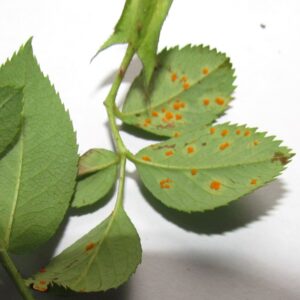
- Rust
-
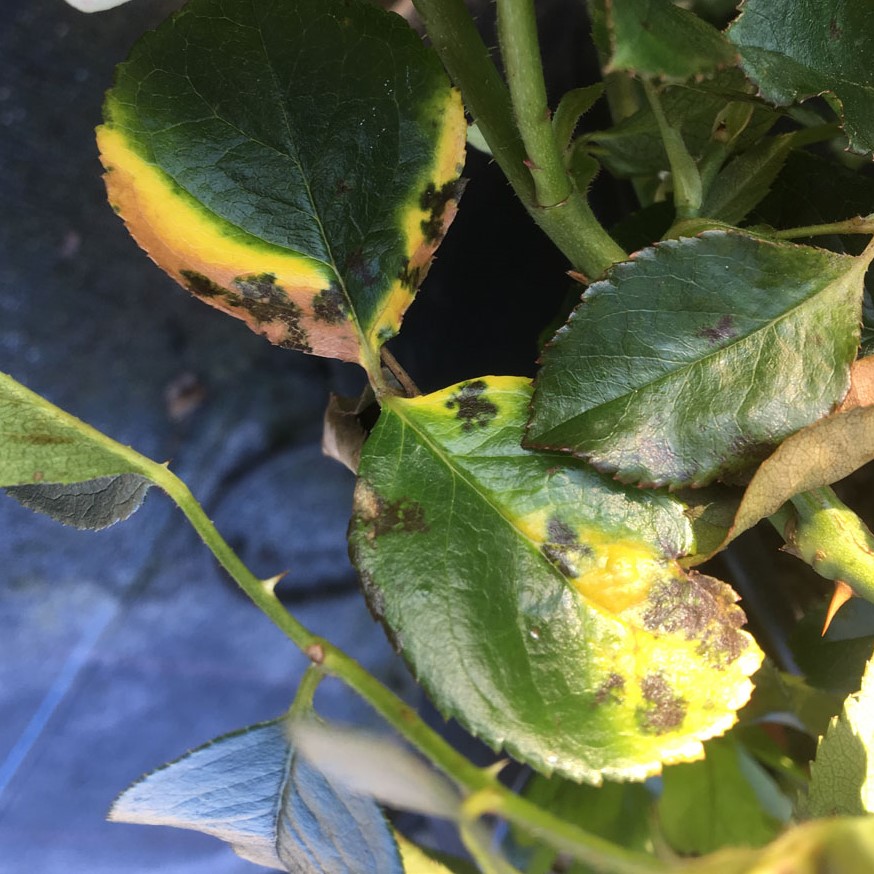
- Blackspot
-
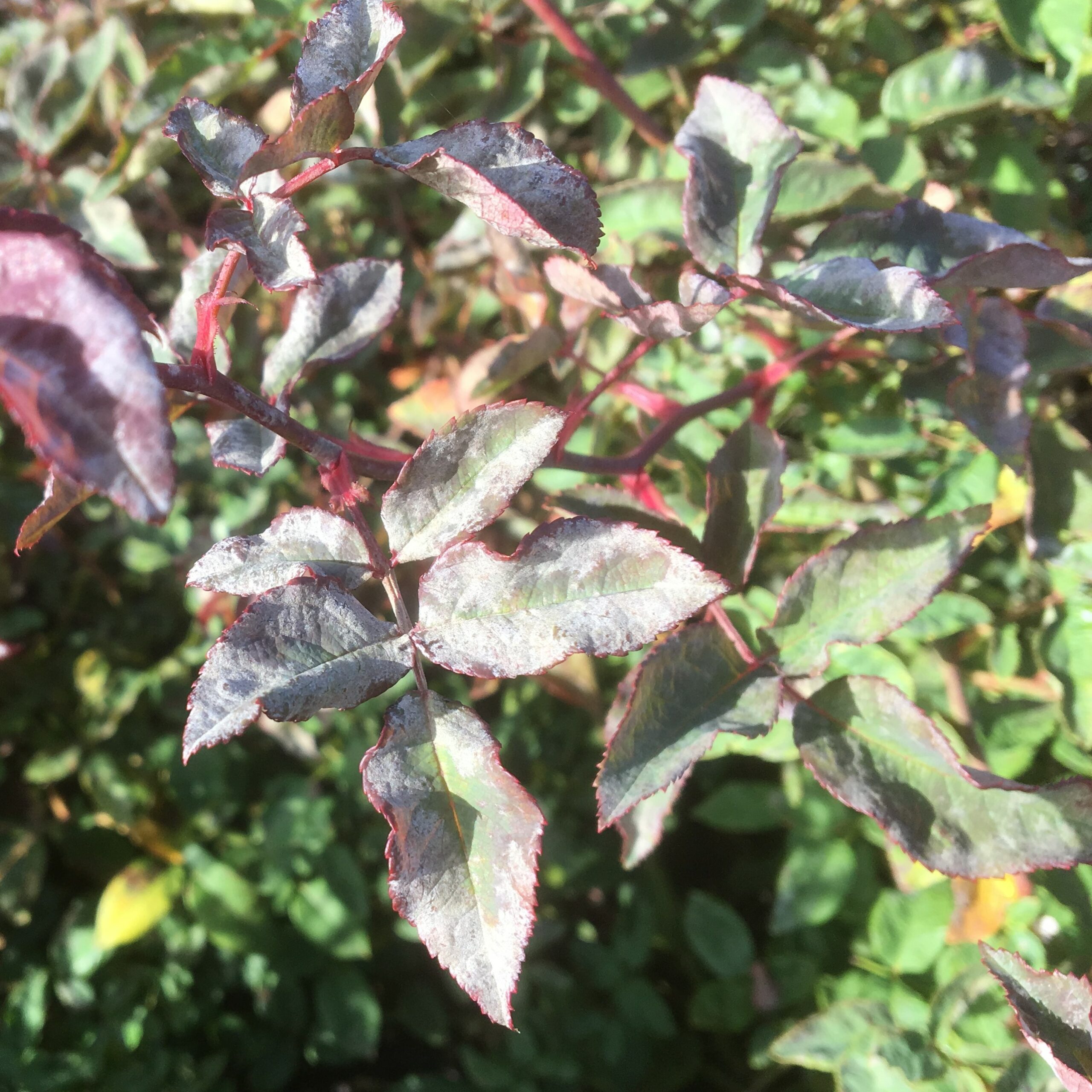
- Mildew
-
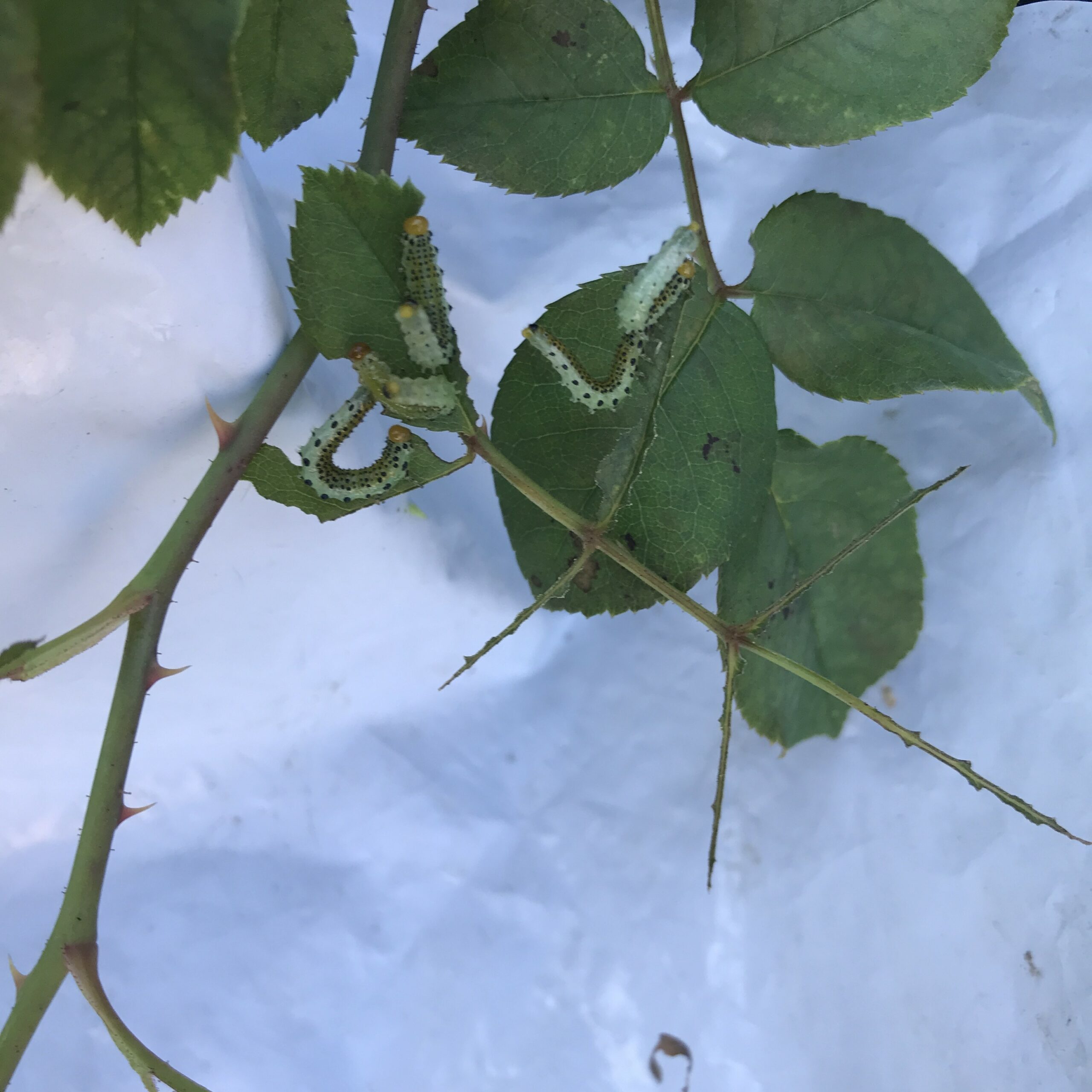
- Caterpillars
-
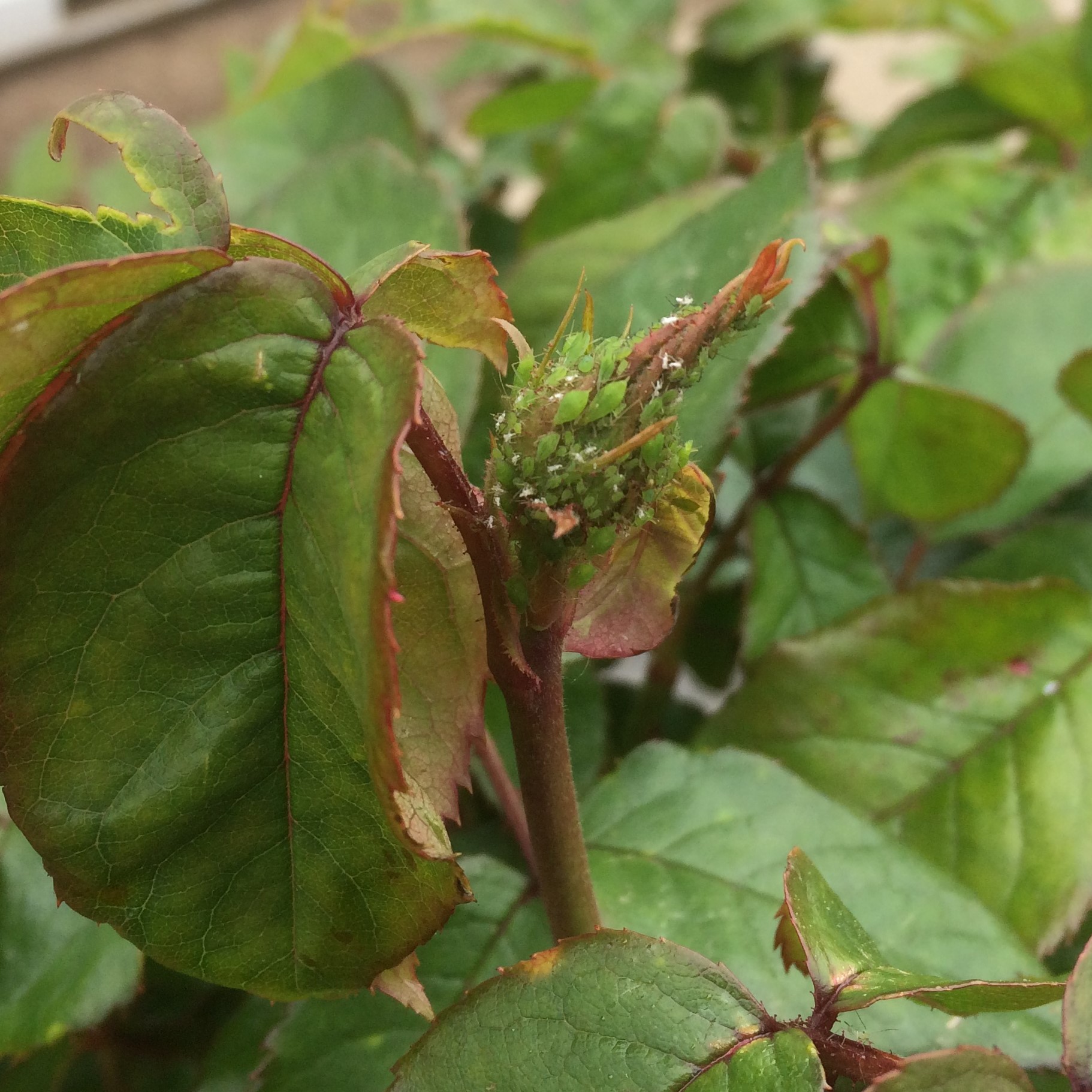
- Greenfly
You may also be interested in...
